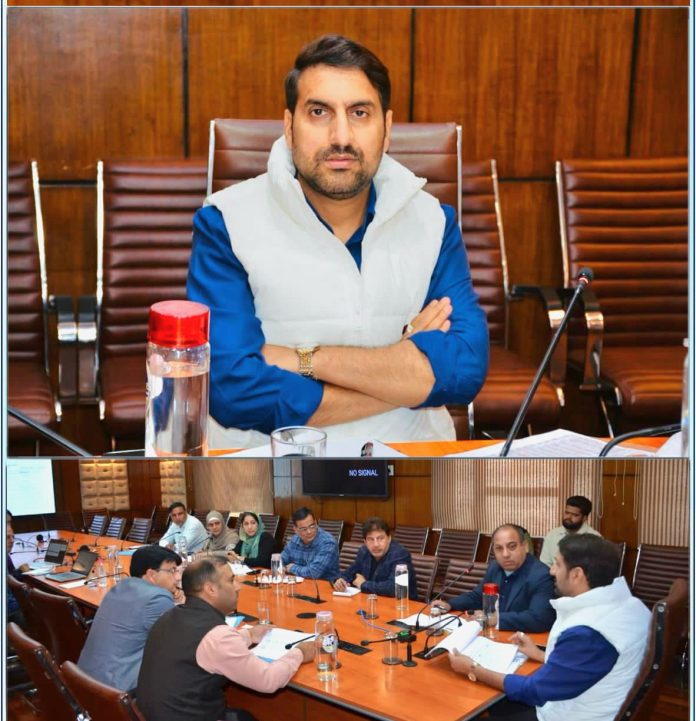SRINAGAR: Secretary, Rural Development and Panchayati Raj department (RDPRD), Mohammad Aijaz Asad today chaired a comprehensive review meeting to assess the physical and financial progress of Integrated Watershed Management Programme (IWMP) being implemented under the Pradhan Mantri Krishi Sinchayee Yojana–Watershed Development Component (WDC-PMKSY 2.0) across Jammu and Kashmir.
The meeting was attended by CEO IWMP, Rajnish Kumar; along with all Assistant Commissioners Development (ACDs), Project Managers, and District Level Technical Experts (DLTEs).
During the meeting, Secretary Asad expressed concern over the slow pace of expenditure and underperformance in certain districts. He directed officers to accelerate pace of ongoing works and maintain due coordination for effective implementation of projects.
He issued directions for 100 percent utilization of funds allocated for plantation and watershed treatment activities during the current financial year.
“We must complete all plantation and NRM works within the current cycle. This is the year to deliver visible results on the ground”, he stated.
Detailing the progress achieved so far, the Secretary informed that out of 4,736 targeted Natural Resource Management (NRM) works, 2,749 have been completed, covering 34,785 hectares against the total treatment target of 69,493 hectares. He also highlighted that 5.54 lakh plantations have been carried out across various districts, 238 polyhouses and 2,918 vermicompost units have been established, besides 3,734 toolkits have been distributed to beneficiaries.
The Secretary also said that 233 Self Help Groups (SHGs) have been formed to strengthen community livelihoods.
Secretary Asad also highlighted the Department’s collaboration with academic institutions, noting that MoUs have been signed with University of Kashmir and SKUAST-Kashmir for the preparation of Detailed Project Reports (DPRs) for 300 springs.
He directed officers to strictly adhere to timelines, ensure beneficiary identification through Gram Sabhas, and maintain transparency and accountability at every stage.
“Our collective goal must be to rejuvenate land and water resources, improve livelihoods, and build climate resilience in rural areas. Watershed projects are not just about soil and water, they are about empowering communities,” he emphasized.
During the meeting, CEO IWMP informed that 19 projects covering 69,493 hectares across 17 districts have been sanctioned under WDC-PMKSY 2.0 at a total cost of ₹194.58 crore.


